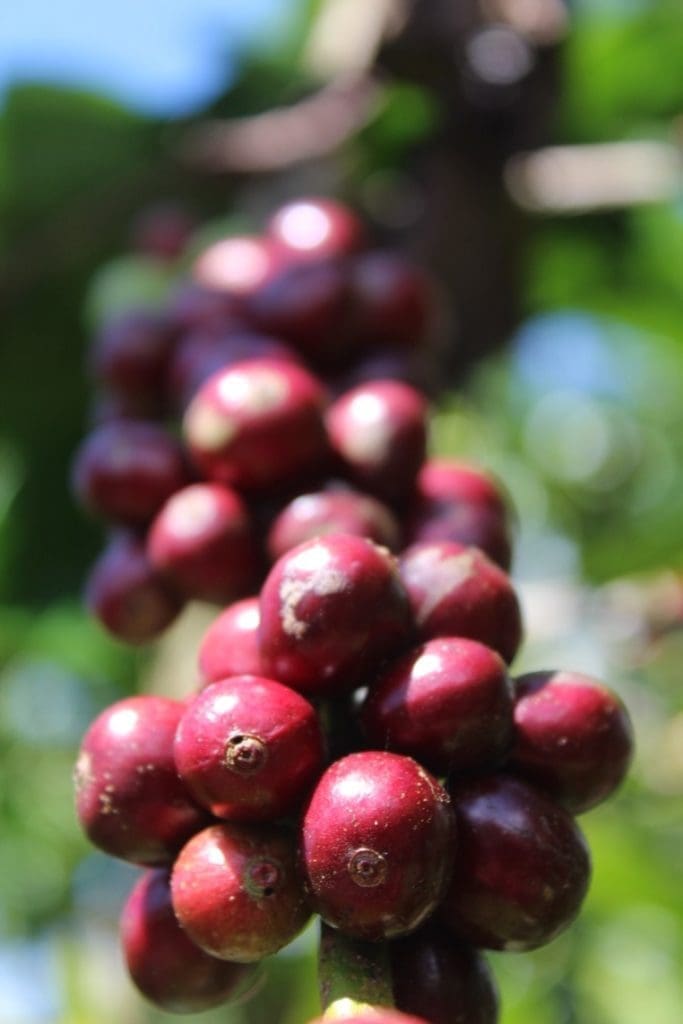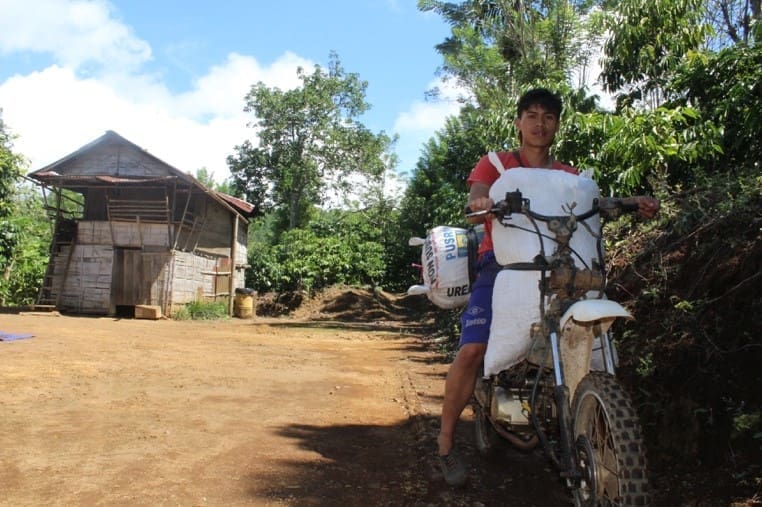Not so long ago, these coffee producers in Bengkulu, a province on Sumatra island in Indonesia, were harvesting during the night to avoid being caught by forest rangers. Despite having lived on their lands for generations, the government considered their activities illegal.
Now, the local communities proudly cultivate their coffee in the daylight—and preserve the forest at the same time. The government even provides financing to their cooperative. By supporting the community to care for and harvest from the forest, they are both supporting local livelihoods and ensuring the forest is protected.
This achievement was the result of a long process supported by AKAR Foundation in Bengkulu and Safir Law Firm in Jakarta, and funded by RRI. AKAR Foundation works on issues related to the environment, indigenous rights, and sustainable management of natural resources. Starting in 2010, AKAR Foundation helped local and indigenous communities secure rights under the social forestry program implemented by Indonesia’s Ministry of Environment and Forestry (MoEF). Social forestry is meant to expand the forest area under community management by providing usage rights in state forests and recognizing community ownership rights in customary forests.
In 2015, this work resulted in 721 households in five villages in Rejang Lebong district receiving licenses to grow coffee in the forest area for 35 years. Legal certainty was crucial to making people feel secure in conducting activities in the forest, including growing coffee and harvesting food and medicinal plants. But this was not yet enough to ensure the community’s prosperity. More was required to improve the quality of both the coffee and the processing and marketing.
Through a partnership with Safir, capacity building for the coffee producers was initiated and relationships were built with central government agencies in charge of supporting community based enterprises and providing credit. Three principles guided AKAR Foundation’s work to support people living around the forest: projects had to be “community-based,” “local resources based,” and follow the “sustainability principle.” These principles value and strengthen the traditional knowledge of communities, many of whom have intimate knowledge on how to sustainably manage their lands and forests. Sustainability is critical given that several non-timber forest products (NTFPs) are now at risk of disappearing because of over-exploitation.
Once their rights to access the forest were secure, the communities needed support on two fronts to ensure successful economic development: on-farm support to ensure sustainable management of the forest; and off-farm support to strengthen the community’s ability to access funding and market its products.
A funding program from the Public Service Agency (Badan Layanan Umum, or BLU) is intended to provide loans for both on and off-farm activities under the social forestry program. But the challenge is to ensure that micro, small, and medium community-based enterprises can access this funding.
This was the purpose of an RRI-sponsored activity conducted by AKAR Foundation and Safir. As a result, in November 2018, local coffee producers in community forests in Bengkulu managed to access BLU public funds. A financing agreement was signed with the MoEF for IDR 7 billion, almost $US 500,000. This money is helping producers to renew their plantations through improved growing practices.
Bridging the gap
In May 2019, the MoEF discussed the potential of developing NTFP-based enterprises. NTFPs and environmental services present huge potential for economic development, but this potential is still unrealized. Until now, only 14 NTFP Utilization Business Licenses have been granted. MoEF Minister Siti Nurbaya stated that the current management of NTFPs is generally only based on harvesting natural plant products, without enough attention to sustainability activities like replanting. This requires serious attention from the government and all relevant stakeholders to maximize the potential of NTFPs.
Community forestry enterprises—including growing coffee and harvesting NTFPs—represent a critical way that the government can both support the livelihoods of Indonesia’s Indigenous Peoples and local communities, and protect the forests at the same time. Communities are proven to be better environmental stewards than other actors, and with the right support they can simultaneously contribute to Indonesia’s development and climate goals.

“NTFP and environmental services development efforts are in line with MoEF’s new paradigm of carrying out sustainable forest management, Minister Siti explained. “Namely shifting from timber business to forest management, and from a corporate orientation into a multi-stakeholders’ orientation.” Forest management activities must provide tangible benefits and generate increasing income and welfare for the communities, while also helping to preserve environmental sustainability. Public funding available under the BLU agency to support such development is largely underutilized. Only about 28 percent of the IDR 6.6 trillion (about $US 470,000,000) budgeted has actually been disbursed. The main reason is a disconnect with local level realities. The Bengkulu producers were able to fulfil the conditions necessary to mobilize these funds, and in doing so both share local realities with central agencies and show the way for other communities seeking to access government support.
Bengkulu coffee producers will start reimbursing the credit they received after seven years, as raising the quality of coffee product does not happen overnight. Meanwhile, they have improved their processing and marketing. Previously, Bengkulu Robusta coffee was mainly traded to the neighboring province and sold under the name “Coffee Lampung”.
Now the producers are not only selling their coffee under a new brand, “AKAR Coffee,” but they are also telling a story: the story of a product grown in forests that are sustainably managed by the communities. By buying this product, consumers not only support the preservation of forests, but also directly contribute to the prosperity of the communities who manage them.

About the author: Anne-Sophie Gindroz is the Southeast Asia Regional Facilitator at the Rights and Resources Initiative.
Interested in receiving notifications about new blog posts? Subscribe to the RRI blog now to get new posts delivered right to your inbox.

